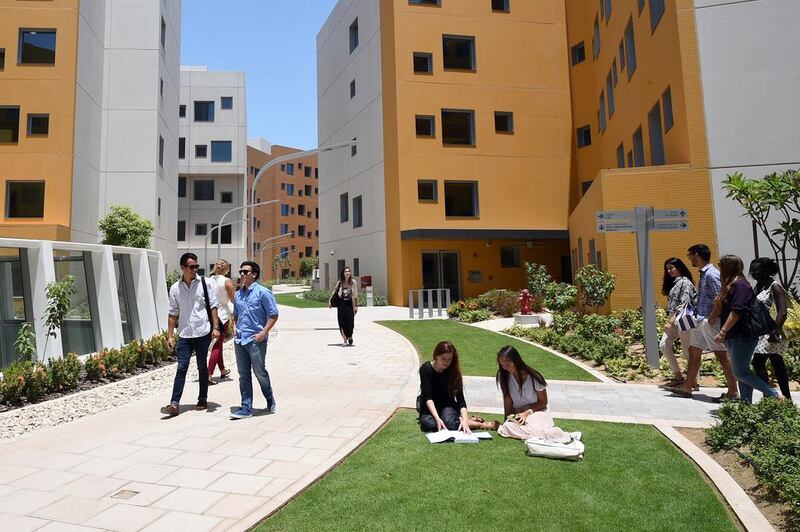The day after Donald Trump was elected the 45th president of the United States, Marlene Johnson, executive director of the Association of International Educators, put into writing what many of her colleagues had been concerned about privately: “There are two things that will always remain true, ” she wrote, regardless of who sits in the White House. First, “international education work is critical to the nation we want to be”. And second, educators such as her “stand among those who see the United States as connected to – and strengthened by – the global community.”
It may sound like a bold claim, but American educators, in particular those university educators abroad, believe they can offer the clearest vision of what a united and peaceful world can look like.
I’ve been thinking a lot about the importance of this type of education since leaving Abu Dhabi. From 2013 until this June, I worked at New York University Abu Dhabi, where my job was to tell the university’s stories to the world. In doing so, I came into contact with students from every walk of life living the ethos that an American liberal arts education promises: a breadth of knowledge, a global awareness, a commitment to understanding and transcending difference, and a need to develop compassion for others.
I watched young undergraduates from across political, cultural and ideological spectrums forge lasting and otherwise impossible friendships: Indians and Pakistanis, Russians and Ukrainians, Chinese and Americans, pacifists and hawks.
Ours was a community built on the values of cooperation, multilateralism and compromise. There were conflicts, to be sure, but our disagreements were always settled in ways that seemingly made the community stronger in the end.
I left Abu Dhabi for London to pursue a postgraduate qualification at the London School of Economics, where my classmates are equally diverse, open and driven to build bridges between us. But what is unique about the American model that I left behind in Abu Dhabi is where I left it – far from home. British institutions – equally rigorous and cosmopolitan – are turning their attention inward.
According to a 2015 survey by the European Association for International Education, branch campus expansion is a decreasing priority for British institutions, with some major universities closing down their foreign campuses, including the University College London’s site in Australia and University of East London’s location in Cyprus.
Whatever it is about America’s educational promise, the world wants it.
According to data compiled by the Cross-Border Education Research Team at the University at Albany-SUNY, there are 247 international branch campuses operating in 76 countries. Of those, 77 are branches operated by or affiliated with American institutions. There are 38 UK-affiliated institutions.
Jason Lane, a scholar at C-BERT, notes that international branch campuses form important diplomatic links between exporting and host countries. These bonds could become even more important for some of the newest American institutions. Arkansas State, for one, plans to open the “first American-style residential campus in Mexico” next year to educate “future agents of change with global perspective”.
To be sure, not all educators are satisfied with the export of their craft. Some critics have questioned the academic freedom of students and faculty operating in non-democratic countries. But to many engaging in this brand of educational expansionism, there is no more effective means of uniting a fractured world than by equipping future generations with the tools to bridge the gaps they will inherit.
“The Brexit vote and the American election make it more clear than ever that we must build common understanding and purpose across divisions within our societies and across the globe,” NYUAD vice chancellor Alfred Bloom told me a few days ago. “Universities like NYUAD offer one of the most promising blueprints for developing that understanding and training people to make cooperative use of it. The liberal arts model is about openness to the world and how to educate for it.”
Mr Trump promised many things during his campaign, including to trim parts of the US department of education. It’s anyone’s guess what that might mean for international education. But as Ms Johnson noted, the world needs America’s approach to learning, no matter what message its commander-in-chief is trumpeting.
“Our society and our world desperately need people who can bridge divides,” she wrote. “Nations are more secure when we find common cause and common ground with others.”
Greg Bruno is a former assistant comment editor at The National and the former communications director at NYU Abu Dhabi





